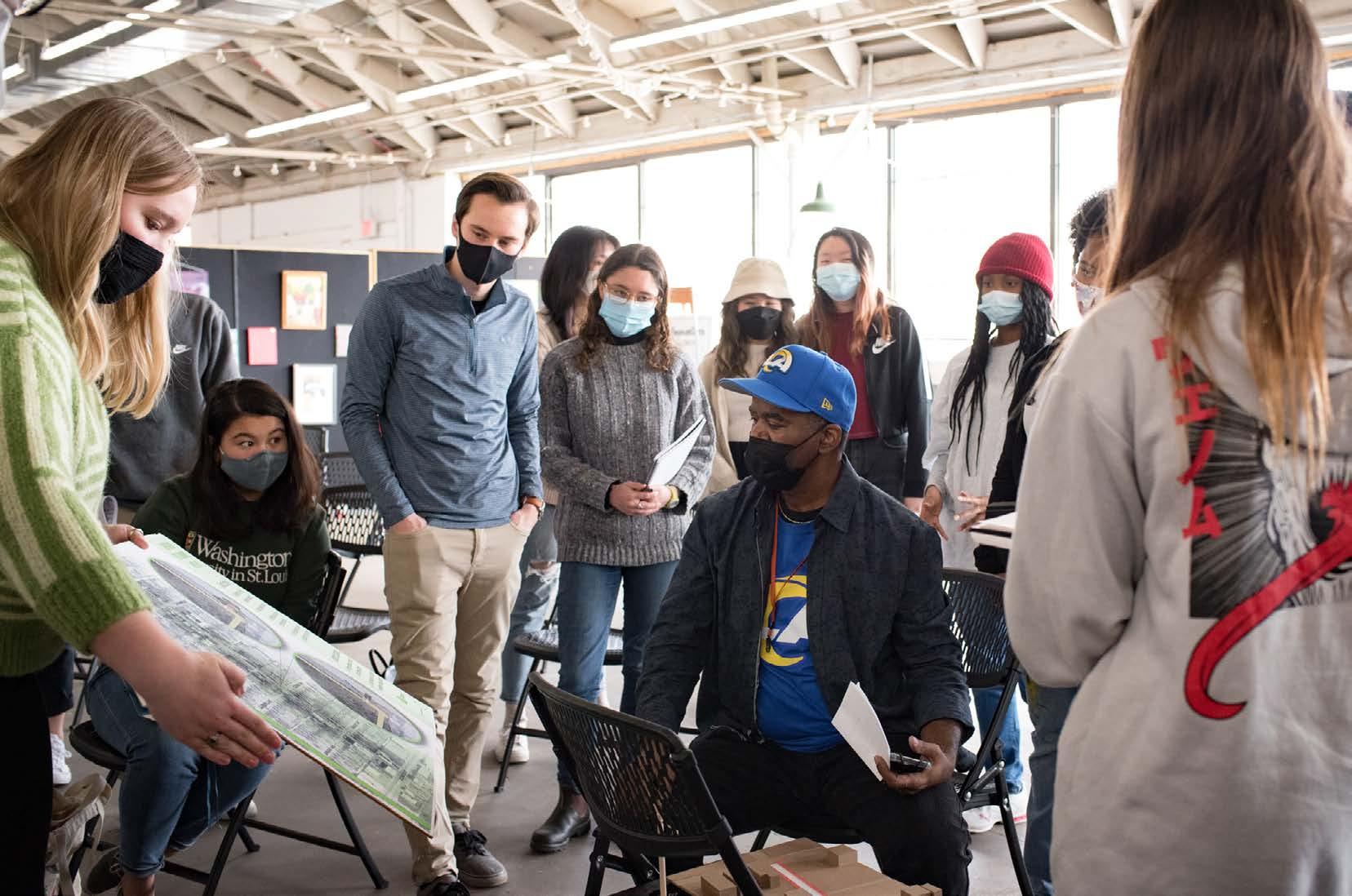
2 minute read
Studios & Seminars
The Sam Fox School provides funding for curricular initiatives involving collaboration with organizations and individuals in the St. Louis community. The Office for Socially Engaged Practice assists with structuring these collaborations to be mutually beneficial.
BY THE NUMBERS
Over 170 socially engaged courses have run in connection with the Sam Fox School.
Over 70 unique faculty across WashU have taught or co-taught a socially engaged course or studio.
Over 2,000 students have enrolled in these courses since their initial offering.
Interdisciplinary Courses
The Sam Fox School has a number of interdisciplinary courses that enable collaboration in the classroom with disciplines including environmental studies, humanities, law, public health, and social work. Past collaborations include the Mellon Foundation Divided City Initiative, which spans courses in the humanities, architecture, and urban design. The Environmental Studies program and the Brown School of Social Work have been long partners of the Sustainability Exchange, coordinating practicum placements throughout WashU and St. Louis to work with community partners by putting concrete solutions in our region.
Course Spotlight
Community Design Sprints
The Community Design Sprints course provides an opportunity for students to work on a tangible design problem for a small-scale yet pressing St. Louis community need. Students advance their own knowledge of community engagement, facilitation, and design communication skills, while working in collaboration with a local partner.

Minor in Creative Practice for Social Change
The minor in Creative Practice for Social Change provides undergraduate students with a deeper understanding of how to use creative practices in art, design, and architecture to address systemic economic, environmental, and social challenges. Students are challenged to think creatively across a broad spectrum to understand and create new systems and solutions, learn about the fundamental constraints of a challenge, and lead the process of change.
—Eve Wallack
'20 in Communication Design Intern, Office for Socially Engaged Practice




